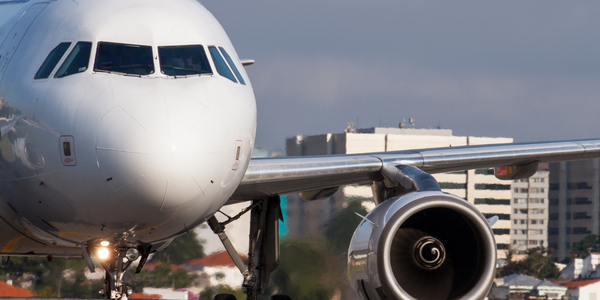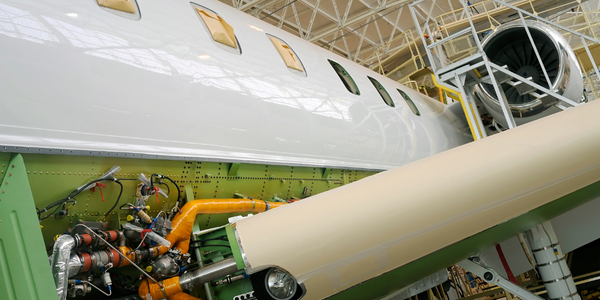Download PDF
Talaria: Revolutionizing Personal Air Mobility with IoT and Simulation
Technology Category
- Sensors - Air Pollution Sensors
- Sensors - Environmental Sensors
Applicable Industries
- Aerospace
- Automotive
Applicable Functions
- Product Research & Development
Use Cases
- Additive Manufacturing
- Rapid Prototyping
Services
- Training
The Challenge
Talaria, a startup founded by students at the Delft University of Technology, is developing new airborne solutions for Personal Air Mobility (PAM). The team is working on an electrically driven PAM that can take-off and land vertically in urban environments. The main challenges faced by the team were weight reduction and speeding up the production process. The weight of all components has a significant impact on flight performance and the flying range. Therefore, Talaria aimed to optimize the hubs of four rotor blades to reduce the overall weight of the device. The challenge was to reduce the weight and number of unique components, while ensuring feasibility and safety in a quicker production process. The chosen manufacturing method was 3D printing, which presented a unique challenge because this is not common practice in the aviation industry for critical components.
About The Customer
Talaria is a startup founded by students at the Delft University of Technology. The team is developing new airborne solutions to accommodate one or more persons for air travel. These solutions include large drones, small helicopters, airplanes, and flying cars. The idea for Talaria’s Individual Air Mobility project began at the end of 2017 when founder Philipp Essle heard about the Boeing GoFly competition which rewarded the best designs for a one-person aircraft. Today, the Talaria team has around 18 students from Delft Technical University and is supported by many sponsors invested in the potential of this revolutionary project.
The Solution
Talaria used Altair Inspire, a simulation technology, to overcome their challenges. They first designed the basic geometry of all the components with a 3D CAD program. Using Altair Inspire, they checked whether material and weight could be reduced through topology optimization. This approach resulted in a significant 1.5-kilogram weight reduction of the rotor hubs. In close cooperation with Additive Industries and Altair, Talaria explored the applications of 3D printing. This manufacturing method is the key to lean production, especially when combined with simulation technology. The Talaria engineers carried out several simulations using Altair Inspire to optimize the geometry, weight, and strength of the rotor hubs. As a result, they were able to reduce the weight by 1.5 kilograms and save 50 percent on the volume and number of unique components. This also simplified and sped up the design and production process with 3D printing.
Operational Impact
Quantitative Benefit
Related Case Studies.

Case Study
Airbus Soars with Wearable Technology
Building an Airbus aircraft involves complex manufacturing processes consisting of thousands of moving parts. Speed and accuracy are critical to business and competitive advantage. Improvements in both would have high impact on Airbus’ bottom line. Airbus wanted to help operators reduce the complexity of assembling cabin seats and decrease the time required to complete this task.

Case Study
Aircraft Predictive Maintenance and Workflow Optimization
First, aircraft manufacturer have trouble monitoring the health of aircraft systems with health prognostics and deliver predictive maintenance insights. Second, aircraft manufacturer wants a solution that can provide an in-context advisory and align job assignments to match technician experience and expertise.

Case Study
Integral Plant Maintenance
Mercedes-Benz and his partner GAZ chose Siemens to be its maintenance partner at a new engine plant in Yaroslavl, Russia. The new plant offers a capacity to manufacture diesel engines for the Russian market, for locally produced Sprinter Classic. In addition to engines for the local market, the Yaroslavl plant will also produce spare parts. Mercedes-Benz Russia and his partner needed a service partner in order to ensure the operation of these lines in a maintenance partnership arrangement. The challenges included coordinating the entire maintenance management operation, in particular inspections, corrective and predictive maintenance activities, and the optimizing spare parts management. Siemens developed a customized maintenance solution that includes all electronic and mechanical maintenance activities (Integral Plant Maintenance).

Case Study
Aerospace & Defense Case Study Airbus
For the development of its new wide-body aircraft, Airbus needed to ensure quality and consistency across all internal and external stakeholders. Airbus had many challenges including a very aggressive development schedule and the need to ramp up production quickly to satisfy their delivery commitments. The lack of communication extended design time and introduced errors that drove up costs.







